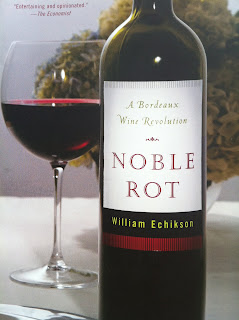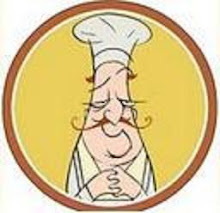 Bacchus and Me – Jay Mcinerney
Bacchus and Me – Jay McinerneyA light hearted and genuinely funny trip through the literary vineyards culled from Jay Mcinerneys House and Garden wine column, this is an easy but enjoyable read.
Whilst many of the extract s follow the tried and tested methods of a thousand word essay on a grape or region, his observation is never less than readable and his similes range from the chuckle inducing to the laugh out loud.
Above all he makes wine fun, with a welter of literary references and shorthand rules for the enthusiast, he covers the agony and ecstacy of finding good Pinot and the overbearing annoyance of snooty sommeliers. Encouragingly global in his outlook he includes the Northern and Southern hemisphere, with a generous helping of US wines.
Aside from a comment about the dominance of Sancerre and the up and coming New Zealand Sauvignon Blancs, this decade old book doesn’t date and will go down well with a glass of Burgundy, or Claret, or... well, pick a chapter and try whatever he recommends.
 Confessions of a Wine Lover Jancis Robinson
Confessions of a Wine Lover Jancis Robinson Though a subscriber to her website I had never read this biography so I was keen to find out more about someone who over time has become the doyenne of British Wine Writing.
Her career in journalism mirrors the transformation of both the trade and the U.K’s appreciation of wine and it is these changes that shape her career and success. She recounts the elimination of common wine faults through technological advances, rise of supermarket buying power, emergence of California, Australia, Chile and Parker. Her description of the Hardy Rodenstock dinners is also interesting given that it would be some years before strong evidence of his forgeries were confirmed.
Self aggrandisement is nonexistent whilst her boundless enthusiasm for wine wherever it may be found which, along with her self deprecation and descriptions of palatial dinners sometimes make you forget her achievements. This consummate professional edited or wrote over a dozen books including the Oxford Encyclopedia of wine, presented most of the successful wine related television series of the eighties and early nineties and continues to win awards.
I read her journalism because her principle take on wine is that first and foremost it should be a pleasure. Her book is also one.
 Noble Rot - William Echikson
Noble Rot - William EchiksonEchikson, a professional journalist weaves a story of family discord at Chateau D’Yquem against the backdrop of an industry largely composed of family owned firms transformed by the increasing demand for quality over volume, competition from the Southern Hemisphere and the painful but inevitable acceptance of change in vinification bought about by science and progress.
All of the key figures in the Bordeaux story are captured. Mouton Rothschild represents the right bank first growths and Cheval Blanc the left. Michel Rolland speaks for the flying winemaker whilst the Garagistes are painted as a catalyst for change. The experience of a struggling cooperative in the Entre dex Meurs region is included to serve as a reminder that by volume Bordeaux represents merely acceptable quality wine in vast quantities.
Robert Parker’s influence is, of course, featured but on this topic it would be nice to see an opinion backed by insight. Most wine fans know of the pro’s and cons of the Parkerisation of wines but most readers don’t have the intimate knowledge of the wines over time to form our own view nor the industry insight.
Well written and nicely paced with a balanced view , the book was published after the Bordeaux bubble in the years 2001 – 2002. It is interesting to observe the concern expressed over inflated first growth prices by merchants in the context of the ebullient 2005 and 2009 campaigns. Plus ca change perhaps?

No comments:
Post a Comment